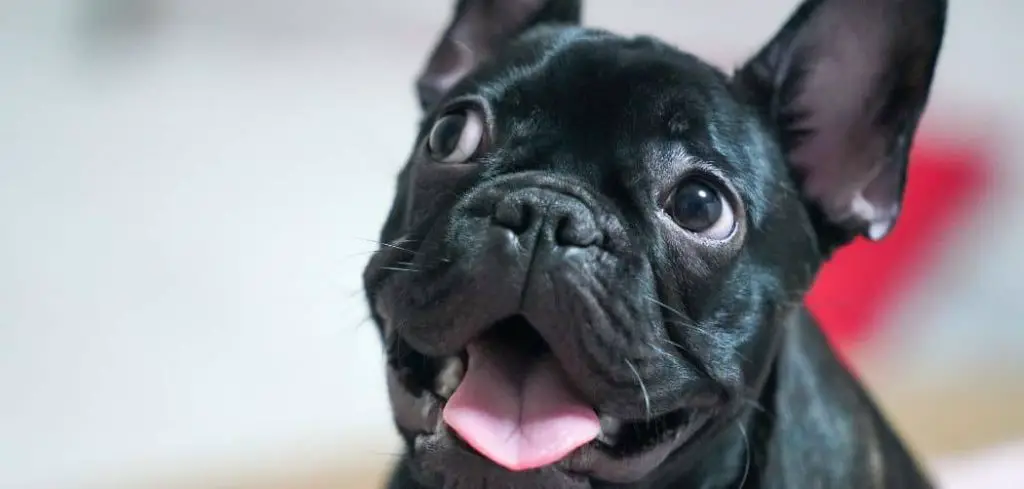Excessive drooling in dogs can be concerning on its own, but when paired with anxiety, it may signal deeper emotional or medical issues.
These symptoms are not just uncomfortable for your dog—they can also indicate distress or underlying health problems.
We outline the link between dog drooling and anxiety, what you can do, and when to seek veterinary help.
Dog Drooling and Anxiety — Why It Happens
Dog drooling and anxiety often go hand in hand, with stress triggering increased saliva production. In many cases, dogs experiencing stress or fear will pant, pace, and drool excessively.
Anxiety can stem from separation, thunderstorms, loud noises, or even changes in environment. But not all cases are purely behavioral. Medical conditions such as nausea, dental disease, or toxin ingestion can also cause drooling—and the discomfort or pain they cause may lead to anxious behaviors.

Dog Drooling and Anxiety: Common Causes
Separation Anxiety
Dogs who suffer from separation anxiety may drool excessively when left alone.
This condition is especially common in dogs that are very attached to their owners or have undergone a recent change in schedule or home environment.
As they become stressed and panicked during your absence, symptoms like pacing, barking, destructive behavior, and heavy drooling can emerge.
This excessive saliva is a physical reaction to the psychological distress they experience, much like how people might sweat when anxious.
Read more: Dog Drooling and Aggressive Behavior (What this means)
Nausea or Motion Sickness
A dog that is nauseous—especially while traveling—may drool and appear visibly uncomfortable or anxious.
Motion sickness affects many dogs, especially puppies and those not used to car rides. Nausea leads to excess salivation, while the discomfort creates restlessness, panting, and whining.
In these cases, both the anxiety and drooling share the same root cause: an upset stomach triggered by motion.
Dogs may also associate travel with unpleasant destinations, such as the vet, which compounds their anxiety.
Dental Pain or Oral Issues
Problems inside the mouth—such as infected teeth, gum disease, or oral injuries—can cause both drooling and behavioral changes.
The pain or discomfort in the mouth causes the salivary glands to become overactive. Simultaneously, the constant irritation can make a dog withdrawn, clingy, or unusually reactive.
Because dogs instinctively hide pain, anxious behaviors might be one of the first clues that something is wrong.
A vet exam can reveal oral issues that are easy to miss with a casual glance.
Toxin Exposure or Ingestion
Toxins, bitter substances, or harmful plants can lead to sudden drooling and panic in dogs.
Certain poisons irritate the mouth and gastrointestinal tract, causing copious drooling. Anxiety may occur because your dog senses something is very wrong—or due to the substance’s direct neurological effects.
Common culprits include insecticides, toads, household cleaners, or xylitol-containing gums.
This is always a medical emergency and requires prompt veterinary intervention.
Heat Stress or Dehydration
Overheating can lead to anxious panting and drooling as your dog tries to cool down.
In warm conditions, a dog may become restless, drool excessively, and show signs of distress or confusion. These are early indicators of heatstroke.
If not addressed quickly, it can progress to vomiting, collapse, or even organ failure.
Providing shade, water, and rest is essential if you suspect your dog is overheating.
Fear-Based Anxiety (Thunderstorms, Fireworks, Vet Visits)
Certain phobias can prompt episodes of intense drooling combined with visible anxiety.
Loud noises, unfamiliar places, or past traumas can trigger a fearful response in sensitive dogs. Along with trembling, hiding, and pacing, you may notice excessive salivation.
These episodes are usually short-lived but very intense. Repeated exposure without support can worsen the phobia over time.
Management strategies like desensitization, calming supplements, or anti-anxiety medications may help.
What to Do If Your Dog Is Drooling and Anxious
If your dog suddenly begins to drool and act anxious, start by observing their surroundings.
Remove any immediate stressors—like loud sounds, unfamiliar visitors, or overstimulation.
Offer a safe, quiet space with water and familiar bedding. Sometimes, just removing the stressor is enough to calm your dog down.
Check your dog’s mouth for foreign objects, injuries, or swelling. If it’s safe, inspect under the tongue and along the gums.
If your dog recently vomited or appears nauseous, with no appetite and pacing behavior, it may be a mild stomach upset. Withhold food for a few hours and monitor their condition.
For dogs with a history of anxiety, natural remedies such as pheromone diffusers, thunder shirts, or calming treats may help reduce both emotional and physical symptoms.
When to Call or Visit Your Vet
Call your vet immediately if your dog is drooling excessively and:
They are also vomiting, collapsing, or shaking uncontrollably.
There’s a foul odor coming from the mouth, or you see swelling, bleeding, or broken teeth.
Your dog may have ingested a toxin, chemical, or unknown plant.
The drooling is accompanied by foaming at the mouth, disorientation, or seizures.
Symptoms persist for more than a few hours or worsen despite removing stressors.
A vet can rule out dangerous causes and help you manage behavioral-based drooling with medications or training support if needed.
Read more: Dog Drooling and Confused (Here’s Why)
Key Takeaway
Drooling and anxiety often go hand in paw—especially in sensitive or stressed dogs.
While some episodes are harmless and brief, others can indicate pain, illness, or poisoning. That’s why it’s important to stay calm, assess the situation, and watch for signs of escalation.
If you’re ever unsure, contact your vet for guidance. Their support can bring peace of mind—and fast relief for your dog.
